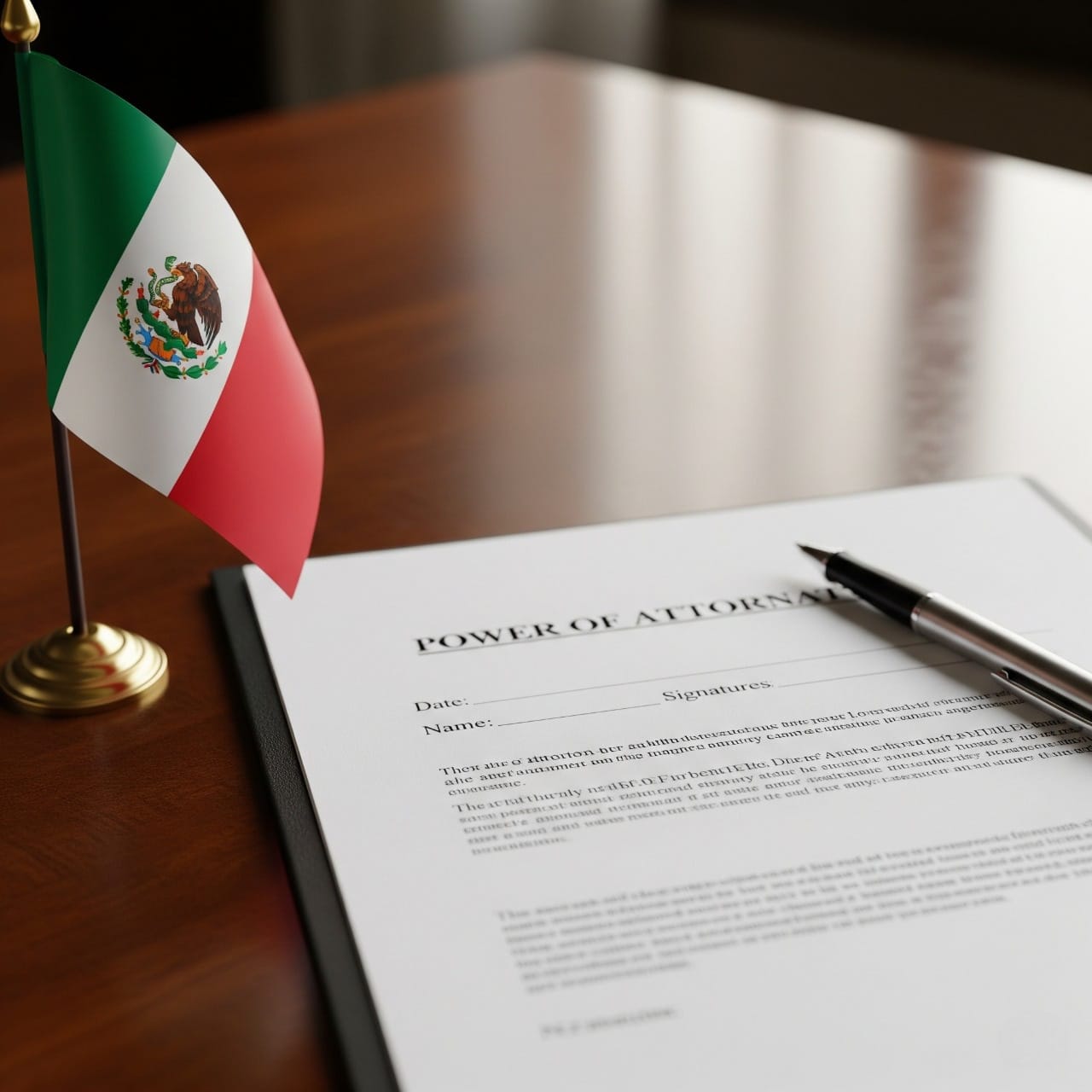Your Legal Stand-In: The Power of Attorney for Mexican Real Estate
Discover why a Poder Notarial is an essential tool for foreign investors buying property in the Riviera Maya and how to create one correctly.
Investing in the Riviera Maya is an exciting journey. However, as a foreign buyer, you cannot always be present in Mexico for every step. Urgent matters require your presence and important legal documents need signatures. This is where a crucial legal tool comes into play: the Power of Attorney, or Poder Notarial. Understanding the power of attorney for Mexican real estate is not just a convenience; it is a logistical necessity for a smooth transaction. It empowers your trusted legal stand-in to act on your behalf.
A Power of Attorney (POA) is a formal document where you, the “grantor,” authorize another trusted person or firm, your “agent” or apoderado, to perform specific legal acts for you. For international investors, this is especially important. For example, a POA allows your representative to sign closing documents or manage administrative tasks when you are a continent away. Failing to create a proper POA can lead to significant delays and complications. Therefore, getting it right is fundamental to protecting your investment.
Choosing Your Tool: The General Power of Attorney
Mexican law offers different types of POAs, and lawyers design each for specific tasks. Choosing the correct one is vital. Granting too much power can be risky, while granting too little can hinder your transaction. As a result, you must understand the key differences between them.
A General Power of Attorney (Poder General) grants broad authority for a wide range of actions. Furthermore, it remains valid until you formally revoke it. Lawyers typically divide this type of POA into three categories of power, which you can grant together or separately:
- For Lawsuits and Collections (Poder General para Pleitos y Cobranzas): This empowers your agent to represent you in legal proceedings. For example, they can file lawsuits, respond to legal actions, and collect debts on your behalf. Your lawyer will need this power to act as your legal gladiator in court.
- For Acts of Administration (Poder General para Actos de Administración): This allows your representative to manage your assets and business affairs. For instance, they can rent out your property, pay taxes, and manage bank accounts related to your investment. However, this power does not typically include the ability to sell or mortgage the property.
- For Acts of Dominion/Ownership (Poder General para Actos de Dominio): This is the most powerful and extensive authority you can grant. It gives your agent the power to act like the owner, including selling, donating, or mortgaging your property. You should only grant this power to someone you trust completely due to the immense control it confers.
The Safer Route: The Special Power of Attorney
In contrast, a Special Power of Attorney (Poder Especial) has much more limited authority. It authorizes your agent to perform only one or more specific, clearly defined tasks. For example, you can grant a Special POA just for signing the closing documents of a single property purchase. Once that task is complete, the POA expires. Consequently, many investors view this as a more secure option because it strictly limits the agent’s authority.
Getting it Done: The Process for a Valid POA
You can create a valid power of attorney for Mexican real estate either inside Mexico or from your home country. The process you choose will determine the steps you need to follow. The most direct method is to grant the POA while you are in Mexico. You simply need to appear in person before a Mexican Notary Public with your official identification. The Notary will draft the official document, called an escritura pública, and you will sign it in their presence. This action ensures you meet all legal formalities from the start.
However, most foreign investors create their POA from abroad. You have two main ways to do this. First, you can visit a Mexican Consulate in your home country. The consular officer acts like a Notary. They draft the POA in Spanish, making it immediately valid for use in Mexico without any further steps. This is often the most convenient and secure option for those outside of Mexico.
Alternatively, you can use a local Notary Public in your own country. The notary creates the document according to your local laws. However, for Mexico to legally recognize it, you must have it internationally certified. Typically, you complete this through an “Apostille.” The Apostille is a certificate that authenticates your local notary’s signature and seal.
The Foreign POA Checklist: Finalizing Your Document
If you create your power of attorney for Mexican real estate outside of a Mexican Consulate, you must take additional critical steps. These steps ensure your document becomes fully effective in Mexico.
First, if your POA and Apostille are not in Spanish, you must obtain an official translation. This is a mandatory requirement, and a certified translator (perito traductor oficial) in Mexico must perform the work.
Furthermore, we highly recommend that a Mexican Notary Public “protocolize” your foreign-issued POA. Protocolization means the Mexican Notary incorporates your apostilled and translated POA into their official public record. This process creates a Mexican public instrument from your foreign document, which makes it much easier to use for official acts like property sales or court appearances.
Finally, remember that you can change your mind. Revoking a POA is your right at any time. Formally, this is accomplished by executing a deed of revocation before a Notary Public. Additionally, you should wisely inform your former agent and any relevant third parties that the Power of Attorney is no longer valid.
Facing a Power of Attorney issue or need to navigate the buying process in the Riviera Maya? Don’t navigate it alone. Contact PeninsuLawyers to protect your investment and secure your property rights.



